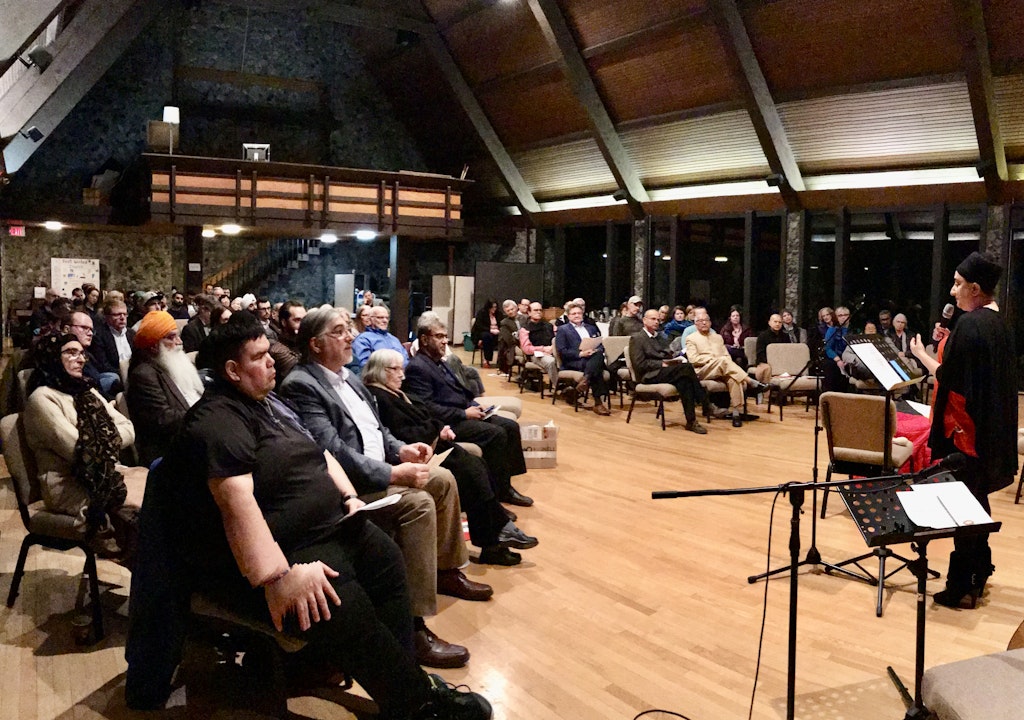In an age marked by polarization and tumult, the necessity for a reassessment of authority systems becomes ever more paramount. This exploration into Baha’i teachings, particularly regarding the balancing of power, unveils a profound philosophical framework that transcends conventional governance paradigms. The Baha’i perspective on authority is not merely theoretical; it engages deeply with the very fabric of human interaction, societal structures, and the innate aspiration for justice and unity.
The Baha’i Faith elucidates the importance of authoritative systems that promote not only justice but also collective happiness. Central to this examination is the concept of consultation. Rooted in the belief that wisdom is dispersed among individuals, this principle asserts that decisions should not be the prerogative of one, but rather the collective endeavor of many. This transformative process engenders a sense of shared ownership, fosters communal responsibility, and lays the groundwork for equitable systems of governance.
Historically, the legitimacy of authority has often been predicated on coercive power or hierarchical dominance. Contrastingly, Baha’i teachings advocate for an authority grounded in moral and ethical imperatives. The very essence of authority, from this perspective, is alignment with the teachings of Baha’u’llah, which emphasize love, unity, and the pursuit of knowledge. The resultant authority is not wielded with an iron fist; rather, it presides with grace, fostering an environment where individuals feel empowered to contribute to the decision-making process.
This intrinsic connection between authority and morality necessitates a reframing of the traditional power dynamic. In a Baha’i context, authority is decentralized, functioning more as a guiding light than as a controlling force. This approach discourages the elevation of self-interest and encourages the consideration of the collective welfare. Such a paradigm shift invites a more inclusive discourse, wherein diverse voices can harmonize to create the symphony of societal progress.
Moreover, the principle of positive disintegration provides additional insight into the Baha’i view of authority. This psychological theory posits that the breakdown of established systems is often a precursor to growth and evolution. The Baha’i perspective encourages individuals to embrace the discomfort of disintegration as a fertile ground for reformation. In the context of authority, this means acknowledging the flaws within existing systems and being willing to dismantle them in favor of more equitable alternatives. This willingness must be accompanied by a steadfast commitment to dialogue and reflection—a fundamental aspect of the Baha’i teachings.
As we delve deeper into the implications of Baha’i teachings on authority systems, we uncover the significance of training authentic leaders. The Baha’i model emphasizes that true leadership is characterized by humility and service, rather than the pursuit of personal accolades. Leaders are seen as facilitators of a collective vision, guiding their communities toward shared aspirations. This redefinition of leadership inherently alters the trajectory of authority, moving away from authoritarianism toward a participatory model where every individual’s contributions are valued.
Furthermore, the Baha’i perspective places considerable emphasis on the interdependence of individuals within society. This interconnectedness highlights a poignant truth: the fates of individuals are inextricably linked, necessitating a collaborative approach to authority. Acknowledging this fundamental reality allows for a more profound understanding of power dynamics, prompting a move toward unity through recognition of common goals. It engenders an environment where individuals prioritize the collective good above personal ambition, a principle that traditional authority systems often ignore.
In grappling with the complexities of authority, it is essential to explore the notion of checks and balances inherent within the Baha’i teachings. Power must not be concentrated in the hands of the few; rather, it ought to be distributed in such a manner that ensures accountability and transparency. This can be understood as a critical mechanism for safeguarding against potential abuses of power. Adopting a Baha’i approach facilitates processes through which authority is checked by communal input, thus averting the risks associated with authoritarian governance.
Moreover, the Baha’i Faith offers a potent alternative to conflict. Authority, when infused with the true spirit of consultation, becomes a vehicle for conflict resolution. Where traditional power structures often breed divisions, the Baha’i principle of collaborative decision-making fosters unity and encourages dialogue. The Baha’i vision is not merely one of tolerance but rather one of genuine acceptance and love—transformative principles that can heal the fissures in society.
As societies traverse through the tumultuous waters of governance and authority, the Baha’i perspective presents a call to action that is as urgent as it is enlightening. It encourages the dismantling of outdated systems that perpetuate division and empowers communities to construct novel frameworks grounded in mutual respect and shared goals. Ultimately, embracing the Baha’i teachings on the balance of power promises not just a shift in perspective but a genuine reawakening of humanity’s collective potential.
In conclusion, the teachings of the Baha’i Faith regarding authority systems offer a roadmap toward a more just and inclusive society. By incorporating principles of consultation, collective responsibility, and interdependence, they challenge traditional constructs of authority and illuminate a pathway toward a more harmonious existence. The opportunity for transformation lies within grasp, provided that we are willing to contemplate and embrace these profound insights.
